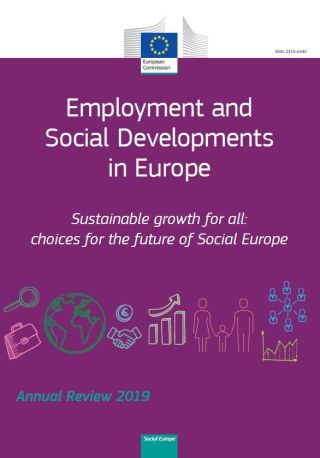Sustainability and the future of Social Europe

One of the key findings of Employment and Social Developments in Europe 2019 is that a just transition requires mainstreaming social and environmental considerations upfront, in the design of policies as well as in the implementation of policies. According to the report this is the only credible way of achieving a truly balanced, multi-dimensional sustainable development model. The report examines a number of themes including sustainable growth and development, productivity, investing in people and social sustainability, social dialogue and the economic and social impact of climate policies.
Among the main findings are:
- The socio-economic cost of inaction on environmental and climate issues in the EU would be huge, leading to frequent severe weather events and natural disasters as well as reducing EU GDP by up to 2% in the long term.
- Almost 1 in 10 householdS in the EU cannot afford to keep their house warm or pay their utility bills. It is vital thAT energy poverty is addressed and energy efficiency measures for vulnerable households are key to reducing energy poverty.
- Job losses from a move to climate neutral economy will be concentrated in a few sectors including fossil fuel extraction and processing.
- Job gains will come in construction, renewable energy production, sustainable transport, food, waste management, business services and sustainable finance. Projections are that a large proportion of these jobs will be middle skilled and middle income.
- Childcare and long-term care, education and training, skills, mobility and housing are identified as key areas for investment to enhance sustainability.
- The report finds that social investments and climate-related investments bring long-term, largely universal benefits while having short-term and largely concentrated costs.
The report concludes that the multi-stakeholder governance of social dialogue is eminently suitable for building a broad consensus to promote more sustainable economies and societies and that constructive social dialogue is key to foster support for a just transition to a low carbon future.